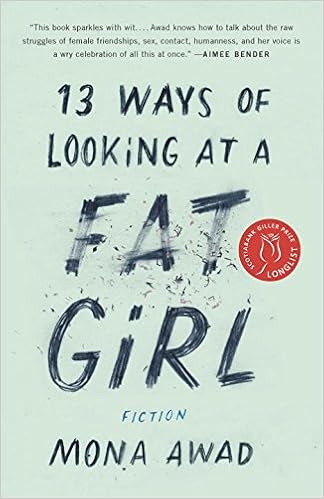3.5 Stars
Positive reviews
of this novel of interlinked stories have been cropping up everywhere. It was even nominated for the Scotiabank
Giller Prize.
The book is
about a young woman (Lizzie/Beth/Elizabeth/Liz/Bess/Betty) who struggles with
weight and changes her name as her weight changes. Her entire life, from her teens to her 30s,
is defined by food, weight, and body image.
Major events in her life (education, engagement, relocation, marriage,
etc.) are mentioned only in passing.
When she does manage to lose weight, she discovers that thinness does
not guarantee happiness; she becomes a bitter, judgmental woman obsessed with
maintaining her slimness.
The novel depicts
the struggles and indignities many women have experienced around their
weight. Anyone who has ever looked in a
mirror and not liked what she sees will understand the protagonist’s
emotions.
The book is
not an easy read. It is often an uncomfortable
read with its description of several cringe-worthy situations. Its messages about society are
disturbing. Even as an adolescent, Lizzie
sees her worth only in terms of how sexually desirable men find her. She becomes involved in a number of
inappropriate relationships because she is desperate for masculine
attention. And women, in the competition
for society’s approval, turn on each other, cruelly judging and berating
others. Also, as witnessed in Lizzie’s
relationship with her mother, obsession with weight loss and body image is
passed down through generations. Society
has mandated a hatred of fat women, but its demands that women conform to an
ideal size are largely unachievable and inevitably leave women feeling
miserable. When Lizzie has a svelte
figure, she is amazed that her overweight manicurist can be so happy with her
life.
The book
blurb describes Lizzie as someone “whose life is hijacked by her struggle to
conform” and that is indeed an accurate description. She is trapped in an unhealthy relationship with
food which leaves her hungry, guilty or angry.
She seems to have no pleasure in life.
Because she does not love herself, her marriage suffers. And there is no indication that she will be
able to escape; the final image of the book is that of a woman cycling in a dark
gym despite fire alarms going off around her.
“She’s like a soap opera that you tune into after ten years only to find
the plot hasn’t moved an inch.”
There are
some humourous scenes but they do little to alleviate the sadness I felt not
only for the protagonist but for all people whose lives have been negatively
impacted by society’s teaching them to loathe their bodies.

No comments:
Post a Comment